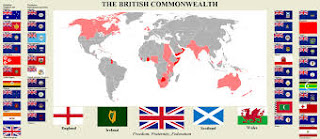Lo avevo comprato lo scorso anno, avevo iniziato a leggerlo
ma c’era sempre qualcosa di più importante, di più urgente. Qualcosa
che sicuramente riguardava i miei programmi didattici, intorno ai quali ruotano
le mie scelte di lettura soprattutto durante l’inverno.
Durante questo fine settimana me lo sono imposta …devo
finirlo!
Sto parlando del libro L’ora
di lezione di Massimo Recalcati. E’ un libro che parla di didattica
ovviamente, di scuola, di studenti e di insegnanti. Ma l’incipit è significativo…..”Accendere il desiderio”.
Ed è questo il filo conduttore di tutto il suo discorso.
Ed è questo il filo conduttore di tutto il suo discorso.
Parla di scuola, di come stia cadendo a pezzi, come
struttura e nelle sue strutture. Parla di insegnanti, spesso umiliati,
frustrati, chiamati anche alla funzione
di supplenti di un discorso educativo che
a volte non sembra avere il sostegno delle famiglie o delle istituzioni.
Parla di studenti, distratti, a volte violenti, capricciosi. E parla anche di genitori,
che di questa storia sono parte integrante.
Come insegnante, sono assolutamente consapevole della situazione reale, ma Recalcati mette in luce qualcosa di più, che mi appartiene, che sento mia.
Parla di un nemico acerrimo di questo lavoro, la tendenza al
riciclo e alla riproduzione di un sapere sempre uguale a se stesso. Mentre un’ora di lezione è ciò
che può aprire un mondo, il tempo di un vero incontro.
Secondo Recalcati l’obiettivo primo della scuola “è il
rapporto del soggetto col sapere che la funzione dell’insegnante deve essere in
grado di animare”. Significa muovere lo studente verso il desiderio di conoscere,
in un’epoca in cui tutto è sempre presente, non esiste più “assenza”, motore primo dell’esperienza del desiderio.
Sapere non significa solo accrescere le proprie conoscenze,
ma anche e soprattutto imparare ad aprirsi all’apertura del desiderio e, attraverso
questa apertura, viaggiare verso altri mondi rispetto a quelli già conosciuti.
L’insegnante conduce verso strade nuove ma soprattutto muove il desiderio del
viaggio.
Per quanto mi riguarda, ciò a cui tengo di più quando sono in classe, è
non vedere sguardi assenti, che forzano la tendenza allo sbadiglio…..ma tenere sveglio chi mi ascolta, far sentire la
forza della parola.
Cito Daniel Pennac e il suo Diario di Scuola in riferimento all’ora di lezione:
“Se voglio sperare nella loro
piena presenza, devo aiutarli a calarsi nella mia lezione. Come riuscirci? E’
qualcosa che si impara soprattutto sul campo, col tempo. Una sola certezza, la
presenza dei miei allievi dipende
strettamente dalla mia: dal mio essere presente all’intera classe e a
ogni individuo in particolare, dalla mia presenza alla mia materia, dalla mia
presenza fisica, intellettuale e mentale, per i cinquantacinque minuti in cui
durerà la lezione”
E ancora Philip Roth con Il Professore di desiderio:
“ Adoro insegnare [….]. Di rado
mi sento così bene come quando sono con le mie pagine di appunti, i miei testi
sottolineati e persone come voi. Per me non c’è altro nella vita che non valga
l’ora di lezione...”
E questo lo sanno bene i miei
studenti e chi mi vive accanto!













